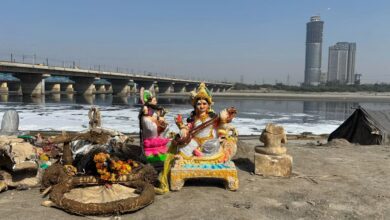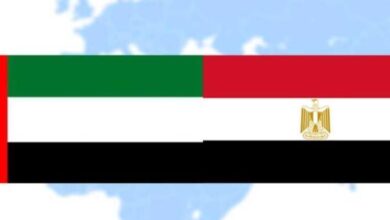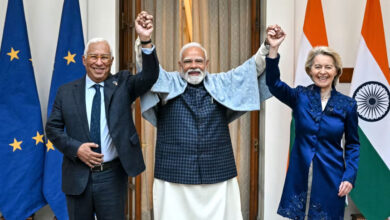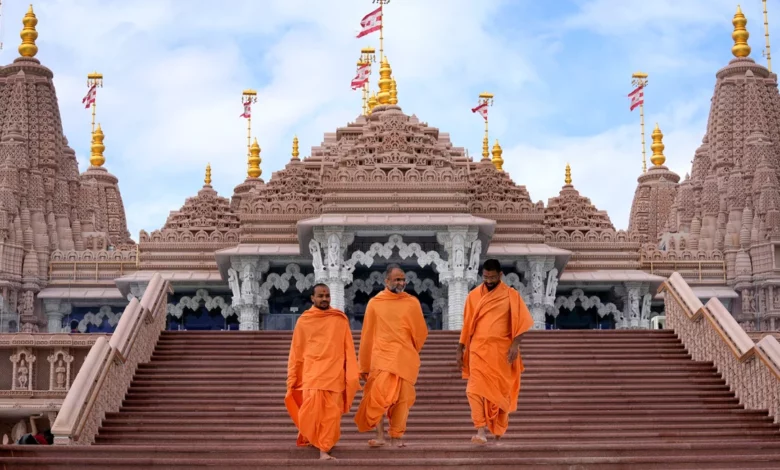
The BAPS Hindu Mandir, built on a sprawling 27-acre site in the Abu Dhabi desert, is the city’s first traditional Hindu stone mandir, its pink sandstone columns topped by seven spires representing the number of Sheikhs that rule each of the Emirates.
Modi was greeted with a hug by the country’s President, Sheikh Mohamed bin Zayed Al Nahyan, and presented with the Guard of Honor, showing how close the two nations have come in their strategic and economic relations.
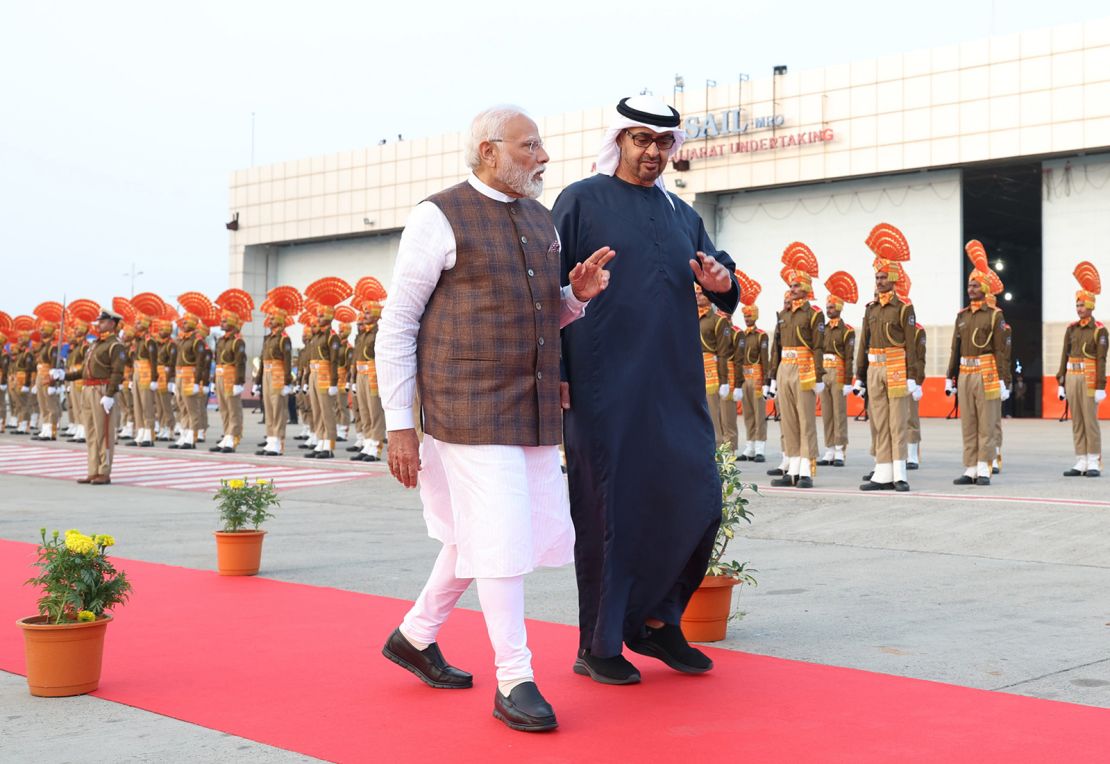
But while Islam is the official religion of the UAE, Modi’s trip comes as Muslims in India say they feel marginalized and threatened as Modi’s Bharatiya Janata Party’s Hindu nationalist policies gain momentum in the world’s largest democracy.
Yet, analysts expect this will not present an issue for Modi during his visit, given India’s rising prominence, its growing economy and strategic position on the global stage. And back home, analysts say Modi’s leading role in the temple’s inauguration could give his party a boost in the buildup to the election in a few months’ time.
In his decade of power, Modi has created an image of himself as “the protector of Hinduism,” said New Delhi based political analyst Asim Ali, and is now taking that message beyond India’s borders.
“He’s hoisting the flag of Hinduism across the world. It’s like the religion and pride of India going overseas,” Ali said.
“He’s sending a message to the world: India is the protector of the Hindu religion.”
‘Important cultural and political project’
The opening of the Abu Dhabi Temple comes just a few weeks after Modi inaugurated the controversial Ram Mandir, a temple built on the foundations of a centuries-old mosque that was torn down by hardline Hindu crowds in the early 1990s in northern India.
That ceremony was seen as a seismic shift away from modern India’s secular founding principles and was hailed by Hindu nationalists as a crowning moment in their decades-long campaign to reshape the nation.
The temple opening in Abu Dhabi “must be seen as a political operation for Modi vis-à-vis constituencies abroad and at home,” said Nicolas Blarel, Associate Professor of International Relations at the Institute of Political Science, Leiden University in The Netherlands.
The temple has a storied history as its UAE-based devotees have long advocated for its construction, said Blarel, who focuses on foreign policy in South Asia and the Middle East.
The country of 9 million is home to about 3.5 million Indian nationals alone, making it the largest population of Indian citizens in the world.
In 2015, the UAE government allocated land for the development of the temple, in a major win for the diaspora.
“This then became a joint venture as both the Indian and UAE governments entrusted the BAPS Swaminarayan Sanstha the responsibility to build and administer the mandir,” Blarel said.
“Nine years later, this important cultural and political project has been materialized and framed by the BJP and Modi as further evidence of the global reach of India’s religious and cultural heritage, but also of cooperation with its diaspora.”
Growing business and economic ties
This is the Indian Prime Minister’s seventh trip to the Islamic country, and the third in the last eight months, indicating its importance to Modi in the lead up to the election.
“India-UAE relations have grown in economic terms, but perhaps more significantly in strategic and security terms,” said Kadira Pethiyagoda, a former diplomat and Brookings Fellow.
“This is the product of India seeking to expand its strategic reach into the Middle East and secure its energy sources,” added Pethiyagoda, author of “Indian Foreign Policy and Cultural Values.”
In a bid to boost the industrial sector and lift exports, the Indian government has sought to sign free trade deals, a move that’s been warmly received around the world.
Last September, US President Joe Biden, Modi and the leaders of the UAE and Saudi Arabia announced the launch of a new trade route connecting India to the Middle East and Europe through railways and ports.
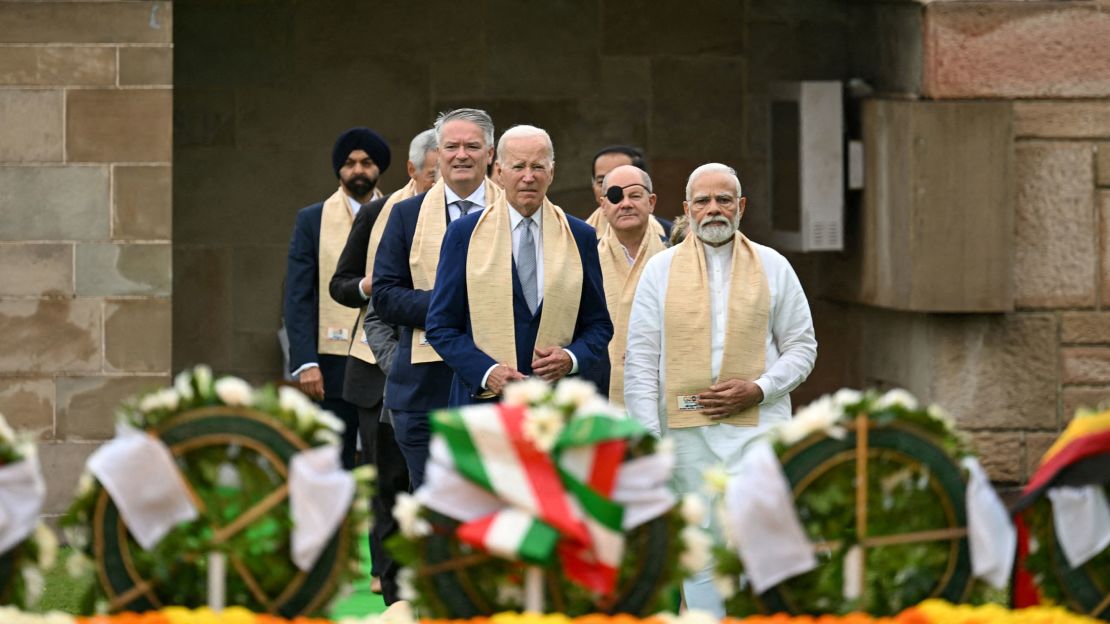
India’s billionaires, including Mukesh Ambani and Gautam Adani, have also invested big money in the country. Last August, the UAE was among six countries invited to join the BRICS bloc, which India is a part of.
“The UAE, like the other Gulf states, has been trying in recent years to diversify its strategic and security partnerships with Great Powers,” said Pethiyagoda. “This means moving away from sole reliance on the US toward partnerships with India, China and Russia.”
Given these reasons, analysts say there is little chance UAE will bring up the criticism of Modi’s government over its treatment of Muslims.
“If they do bring it up, it will be in private,” Pethiyagoda said. “Gulf governments have always taken a practical approach of non-interference in domestic affairs of major powers.”
And it’s also unclear how much extra support the UAE temple will give a prime minister already popular with devout Hindu followers.
The BAPS temple “will not win him much more adulation amongst BJP supporting Hindus than the Ram Mandir in Ayodhya has already garnered,” Pethiyagoda said.
“It may however win votes in the South where much of India’s Gulf workforce hails from and sends their remittances to, and where the BJP is weaker.”
He added: “It could also, if promoted properly, help to improve his reputation amongst some Muslim voters to whom it could be portrayed as Hindu-Muslim friendship.”

